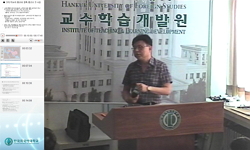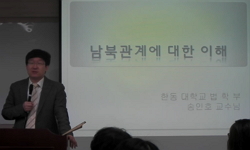유럽 냉전은 냉전기 가장 강력한 군사동맹이있던 NATO와WTO의 대결체제로 특징지어졌다. 유럽인들은 냉전 형성과-독일분단을 포함해-강화과정에서 적극적인 역할을 수행했다. 미국과 소련의 ...
http://chineseinput.net/에서 pinyin(병음)방식으로 중국어를 변환할 수 있습니다.
변환된 중국어를 복사하여 사용하시면 됩니다.
- 中文 을 입력하시려면 zhongwen을 입력하시고 space를누르시면됩니다.
- 北京 을 입력하시려면 beijing을 입력하시고 space를 누르시면 됩니다.
유럽 냉전의 개요 -"탈냉전"의 관점에서 = The contour the European cold war - from a "Post-Cold War" Perspective
한글로보기https://www.riss.kr/link?id=A100726193
- 저자
- 발행기관
- 학술지명
- 권호사항
-
발행연도
2015
-
작성언어
Korean
-
주제어
유럽 냉전 ; 유럽안보협력회의 ; 동방정책 ; 독일통일 ; 탈냉전 ; 평화운동 ; European Cold War ; CSCE ; Ostpolitik ; German unification ; Post-Cold War ; peace movement
-
자료형태
학술저널
- 발행기관 URL
-
수록면
17-66(50쪽)
- 제공처
- 소장기관
-
0
상세조회 -
0
다운로드
부가정보
국문 초록 (Abstract)
유럽 냉전은 냉전기 가장 강력한 군사동맹이있던 NATO와WTO의 대결체제로 특징지어졌다. 유럽인들은 냉전 형성과-독일분단을 포함해-강화과정에서 적극적인 역할을 수행했다. 미국과 소련의 압박과 규정이 항상 따라 다녔지만, 유럽은 독일분단과 동맹체제 형성과 유지 및 재구축에서 능동적인 인지와 적극적인 실천을 보였다. 그러나 유럽인들의 능동성이 더 적극적으로 발현된 것은 동방정책과 유럽안보협력회의를 통한 데탕트 정치와 아래로부터의 평화운동이었다. 특히 헬싱기-프로세스는 미국과 소련의 지원이나 양해에도 불구하고 무엇보다 유럽 프로젝트였다. N+N국가들의 평화 기교 역할도 유럽 냉전의 특별한 점이었다. 결국, 유럽 냉전의 발전사는 위기나 공포를 넘어 대안적인 평화구상과 현실 적인 평화정치와 구체적인 "탈냉전"의 성취가 함께 따랐다. 그렇기에 유럽 냉전은 열전과 비교되는 ``상상의 전쟁``으로서의 냉전 양상을 보여 줄 뿐 만 아니라 평화의 발전사를 보여주는 것이기도 한다. 물론, 유럽의 ``탈냉전``이 완성되었다고 보기는 어렵다. 냉전 극복에는 군사적 대결체제의 해체만이 아니라 이질적인 냉전 경험에 대한 더 많은 소통이 필요하다.
다국어 초록 (Multilingual Abstract)
The European Cold War was characterized by the confrontation between NATO and Warsaw Pact which constituted the strongest systems of a military alliance during the global Cold War. Europe was most definitely in the shadow of the superpowers. But, the ...
The European Cold War was characterized by the confrontation between NATO and Warsaw Pact which constituted the strongest systems of a military alliance during the global Cold War. Europe was most definitely in the shadow of the superpowers. But, the Europeans played also a vital role in the formation and consolidation of the Cold War regime in Europe, accompanied by the division of Germany. Despite the controls and influences of USA and Soviet Union, Europeans in the West and East developed an awareness about their own thinking and practices in config-uring the Cold War Europe. However, the more evident culmination of the active role of Europe in the Cold War was Willy Brandt`s pursuit of Ostpolitik and the devel-opment of the Conference on Security and Cooperation in Europe which represented a strong desire to overcome the rigidities of the bloc system and a challenge to the excesses of bipolarity. In addition, the European neutral and non-aligned states took an active part in the mul-tilateral negotiations that led to developments of the ``European proj-ect`` for peace. They acted as initiators and mediated as coordinator the necessary compromises between East and West. Besides, the European peace movement of the 1980s helped the helped the peace politics continue and formed the foundation for a peaceful end of the Cold War in Europe. In this, the European Cold War was marked not only by the absence of wars. During the epoche of the Cold War, but the Europeans went on creating alternative peace politics ``post-cold war`` efforts and accomplished remarkable achievements. The history of the European Cold War can be more positively reinterpreted as the development history of peace which could go beyond the ``imaginary war``. From the perspective of experience, the Cold War in Europe didn`t end. To consummate the ``post-cold war`` in Europe, one has to learn learn to communicate rather more on heterogeneous and different life experiences and memories on the Cold War than on dissolution of the dissolution the military con-frontation system.
동일학술지(권/호) 다른 논문
-
- 서울대학교 국제문제연구소
- 마상윤 ( Sang Yoon Ma )
- 2015
-
냉전의 동남아시아적 전개 -글로벌 냉전의 개입과 지역 자율성
- 서울대학교 국제문제연구소
- 조양현 ( Yanghyeon Jo )
- 2015
-
- 서울대학교 국제문제연구소
- 김강석 ( Kangsuk Kim )
- 2015
-
지역적 맥락에서의 아프리카 냉전 사례 -1970년대 에티오피아의 사회주의화와 소련의 개입과정을 중심으로
- 서울대학교 국제문제연구소
- 변웅 ( Oung Byun )
- 2015




 KISS
KISS





